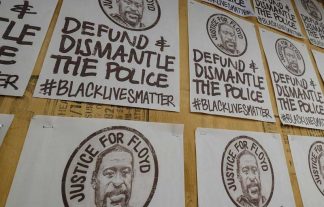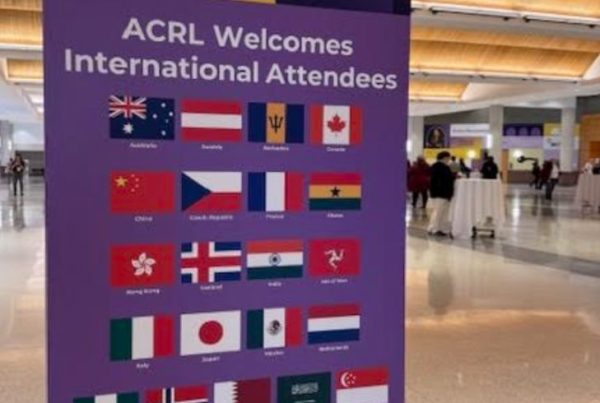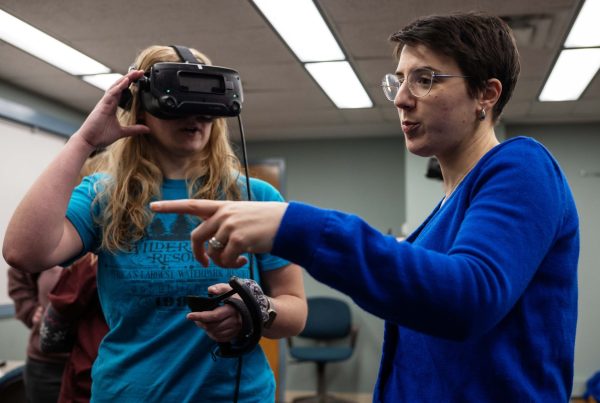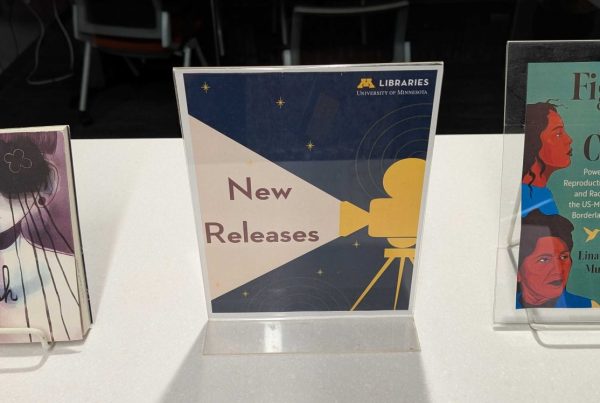By Alicia Kubas, Malaika Grant, Katherine Nelsen, and Jenny McBurney
In May, George Floyd was killed by a Minneapolis police officer while in police custody. The actions of the police officer shed light on the repeated unnecessary use of force for non-violent offenses and non-emergency calls.
In the wake of weeks of protests, several Minneapolis City Council members have said they will vote to “defund” the Minneapolis Police Department. However, it can be unclear what defunding the police means and what level of reform this type of change could entail.
Does defunding the police mean completely abolishing police departments? What public safety measures would still be in place if police departments were defunded or disbanded?
The resources below provide background information on this topic in the Minneapolis area but also focus on police reform in other parts of the United States where similar calls for defunding or disbanding the police have formed. Context is very important in understanding racial relations and law enforcement, so there are also resources for exploring the intersection of race and policing.
News articles to frame the issue
Recent news articles focusing on defunding Minneapolis police
- Star Tribune, What you need to know about plans to defund Minneapolis police, June 9, 2020
- New York Times, What Would Efforts to Defund or Disband Police Departments Really Mean?, June 11, 2020
- New York Times, Minneapolis Will Dismantle Its Police Force, Council Members Pledge, June 7, 2020
- MPR News, Minneapolis Council Takes Steps to Put Police Department Changes Before Voters, June 12, 2020
- MPR News, Some Minneapolis activists doubt disbanding police will work, June 8, 2020
News articles about police defunding and reform in Camden, NJ
- New York Times, Changes in Policing Take Hold in One of the Nation’s Most Dangerous Cities, April 2, 2017
- Washington Post, Camden police reboot is being misused in the debate over police reform, June 16, 2020
Freely available online resources
- Gallup, an analytics and public opinion polling organization, contains a section of poll data and articles related to race relations and police. For example, check out the Gallup Confidence in Institutions poll data and this article about low trust in police in Chicago.
- NPR Throughline, a podcast exploring topics in history related to current events, did an episode on the origins of American policing, which put violent control of Black Americans at the heart of the system.
- MPD 150, a Minneapolis community-based initiative challenging the narrative that police exist to protect and serve, published a 2017 report, Enough is Enough, reviewing the performance of the Minneapolis Police Department
- American Civil Liberties Union (ACLU), Picking Up the Pieces – Policing in America: Minneapolis Case Study, 2015
- Urban Institute’s Justice Policy Center, Public Investment in Community-Driven Safety Initiatives, a 2018 report exploring the landscape, key considerations, and models for community-driven public safety and policing
Freely available government information
- City of Minneapolis annual budget data and reports (2000-2020), which include budget information for police and public safety
- Minnesota Advisory Committee to the US Commission on Civil Rights, Civil Rights and Policing Practices in Minnesota, March 2018 report
- Sonia Tsuruoka, Camden’s Turn: A Story of Police Reform in Progress, report produced in collaboration with Not In Our Town and US Dept of Justice Office of Community Oriented Policing Services, 2018
- US Dept of Justice, Office of Community Oriented Policing Services, Maintaining First Amendment Rights and Public Safety in North Minneapolis, 2017 report
U of M Libraries Resources
Books
- P Butler, Chokehold : Policing black men, 2018
- J Camp & C Heatherton (editors), Policing the planet: Why the policing crisis led to Black Lives Matter, 2016 (also freely available online)
- L Ralph, The torture letters: Reckoning with police violence, 2020
- S Yung Shin (editor), A good time for the truth: Race in Minnesota, 2016
- M Schenwar, J Macaré & A Yu-lan Price (editors), Who do you serve, who do you protect? Police violence and resistance in the United States, 2016
- Alex S Vitale, The end of policing, 2017
Journal articles
- R Rosenfeld & J Wallman (2019) Did de‐policing cause the increase in homicide rates?, Criminology & Public Policy 18(1), 51-75.
- R Helms & SE Costanza (2020) Contextualizing race: A conceptual and empirical study of fatal interactions with police across US counties, Journal of Ethnicity in Criminal Justice, 18(1), 43-71.
University of Minnesota research and expertise
The University of Minnesota Press has a collection of antiracist books, “Reading for Racial Justice,” freely available to read online through August 31, 2020. Specific books about the police include:
- B Jefferson, Digitize and Punish: Racial Criminalization in the Digital Age, 2020
- B Story, Prison Land: Mapping Carceral Power across Neoliberal America, 2019
The Center for Urban and Regional Affairs (CURA) connects the resources of the University of Minnesota with the interests and needs of urban communities and the region for the benefit of all. This includes funding a project, Police Reform in the Progressive City, led by Michelle S. Phelps, faculty in the Department of Sociology (see below for more info). CURA has also helped fund research on racial profiling in Minneapolis traffic stops, which resulted in a 2009 report by Joseph Ritter, faculty in Applied Economics (see below for more info), and doctoral candidate David Bael.
Various faculty and researchers at the University of Minnesota have conducted research and published related to police reform and disbanding:
- Adam Bledsoe (Geography, Environment, and Society) specializes in Black geographies, African diaspora, political geography, critical theory, and political movements. Bledsoe created the Minneapolis Uprising Syllabus, a list of resources contextualizing “how Minneapolis became a flashpoint for a global uprising against anti-Blackness and state violence.” The bibliography includes a section of materials focusing on the Minneapolis Police Department’s relationship with the Black community.
- Rose Brewer (African American and African Studies) has a variety of research specialities related to race, class, and gender. She recently published the article Black movement formation: Race, class, gender, capitalist globalization, and white nationalism today, which has a focus on contentions with police.
- Michelle Phelps (Sociology) specializes in the sociology of punishment and much of her work focuses on policing. She has been working on a project on policing and police reform in Minneapolis since 2014, for which she provides more detailed information on her website.
- Maria Ponomarenko (Law) focuses on research related to government agencies, including policing and law enforcement. She is also the co-founder and counsel at the Policing Project, “a non-profit based at the NYU School of Law that works in tandem with policing agencies and community groups to promote more effective police governance.” Professor Ponomarenko recently contributed to a report, Changing the Law to Change Policing: First Steps, calling for police reform with concrete actions from a law perspective.
- Joseph Ritter (Applied Economics) published How do police use race in traffic stops and searches? Tests based on observability of race, an article focusing on Minneapolis.
- Joe Soss (Humphrey School of Public Affairs) recently published Police Are Our Government: Politics, Political Science, and the Policing of Race–Class Subjugated Communities, an article exploring the nexus of politics and policing in communities of color.
The following University of Minnesota librarians can provide research assistance on this topic
Malaika Grant — Librarian for English and American Literature, African and African American Studies, Cultural Studies, and Comparative Literature
Alicia Kubas — Librarian for Government Information
Scott Marsalis — Librarian for Social Work, Family Social Science, and Kinesiology
Jenny McBurney — Librarian for Political Science, Economics, and the Institute for Advanced Study
Kat Nelsen — Librarian for Anthropology, Sociology, American Studies, American Indian Studies, and Asian American Studies
Share your ideas
The Minneapolis City Council wants to hear input on how public safety could be transformed in Minneapolis. You do not need to be a resident of Minneapolis to submit feedback and ideas.





